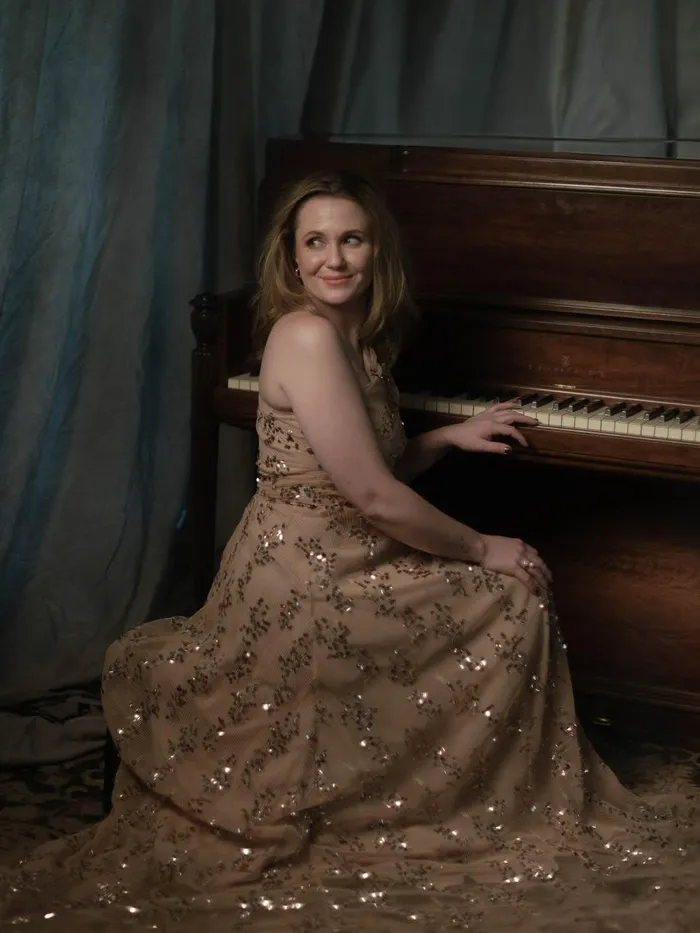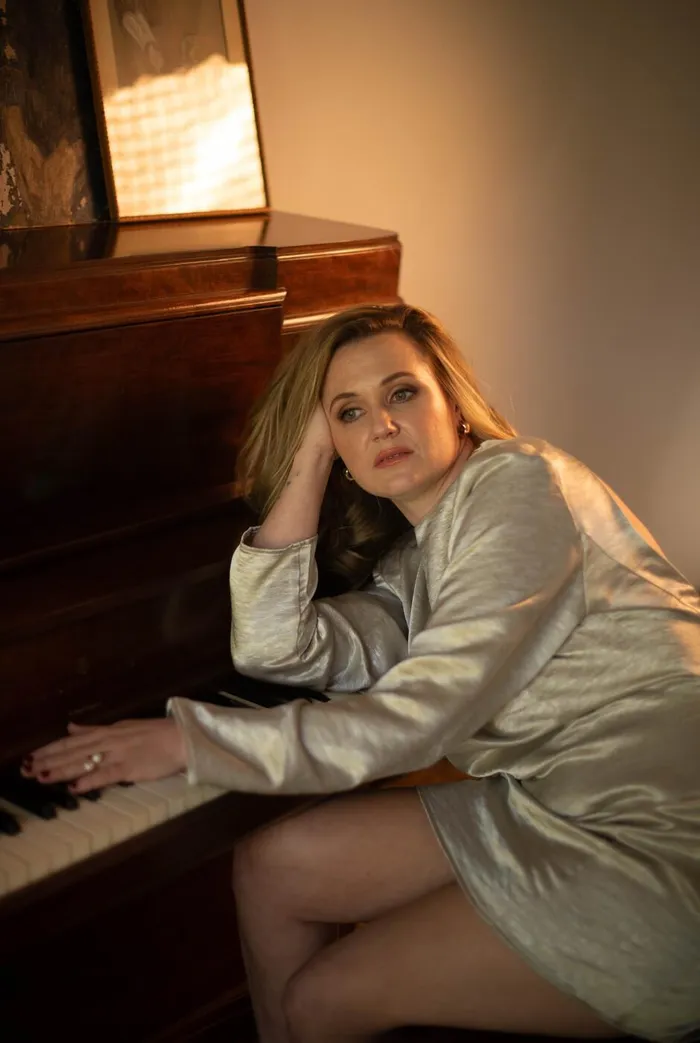Caroline Leisegang redefines classical music: a decade of innovation with 'Øyeblikk: Recomposed’

Caroline Leisegang is regarded as one of the youngest classical composers in South African history.
Image: Supplied
South African composer Caroline Leisegang has released her sixth studio album, “Øyeblikk: Recomposed”, marking ten years since her debut, which first placed her on the international map.
Leisegang, born in Johannesburg, is regarded as one of the youngest classical composers in South African history.
Her career began with her 2015 debut album “Øyeblikk”, which earned her the iTunes Best of 2015 award for the Best Classical Album.
The recognition gave her a global audience and established her as a composer whose work blends minimalist structures with emotional depth.
Reflecting on her debut, Leisegang said: “The moments have changed, and I have always wanted ‘Øyeblikk’ to grow when the time was right. I did not want it to remain frozen in 2015. I wanted it to evolve alongside me. If the original album was about capturing a moment, this one is the moment of now.”
Early beginnings in Johannesburg
Leisegang’s path into music started in her childhood. She began piano lessons at the age of six, later adding cello when she was fourteen.
“My parents encouraged me to pursue music, but so did my teachers and peers,” she recalled. “There was always support for me to follow this path.”
Her formal studies began at the University of the Witwatersrand in 2009, where she majored in Music Composition and also studied French and English Literature.
She then later enrolled at Trinity College of Music in London from 2011 to 2014.
“I always say this is where I learned to write,” she explained. “This is where ‘Øyeblikk’ was born.”
A decade of consistent recognition
Since her debut, Leisegang has released a string of albums that consistently reached number one on Apple Music’s Classical Top Albums chart.
Her most recent release before the new project, “Comes the Night”, topped the chart in October 2024, making it her fifth consecutive album to do so.
Asked how the early recognition shaped her, she reflected: “I think it gave me a platform to grow and explore from. It also gave me an audience I would never have had otherwise. To be able to say that I have even just a handful of listeners is amazing.”
She is often compared to composers like Ludovico Einaudi and Max Richter for her minimalist and cinematic style. Her piano-driven works are known for simplicity and emotional resonance, often touching on themes of introspection and fragility.

Caroline Leisegang is regarded as one of the youngest classical composers in South African history.
Image: Supplied
Revisiting the debut
Revisiting her debut album for its tenth anniversary was not an obvious decision, Leisegang admitted. “I always knew I wanted to do something special for the ten-year mark, but I was not entirely sure what."
"After releasing ‘Comes the Night’, I thought maybe the right thing would be to showcase ‘Øyeblikk’ as I would write it now as a composer. Would it sound the same or different? It turned out to be different.”
The recomposed version retains the essence of the original while reflecting a decade of growth.
“My debut always felt very heavy to me,” she said. “This version still carries weight in places but has an overall lightness to it.”
One track in particular stood out to her.
“‘Midnat’ was definitely a meaningful piece to rework. It has always been the darkest piece, both old and new. I wanted to keep that quality while still adding warmth, which was harder than I expected.”
Working with Jacques Du Plessis again
Leisegang worked once again with producer and engineer Jacques Du Plessis, who also collaborated with her on the original “Øyeblikk”.
“Back then, we were both exploring,” she recalled. “Now we have grown up together in a way. Jacques makes the studio feel like a place of safety. He has the ability to make the process feel effortless and purposeful. He guides you gently, and always with respect for the music.”
On her debut recording, a session pianist played the piano parts. This time, Leisegang performed them herself.
“It felt important to do my own work,” she explained. “I wanted this version to reflect where I am now, not just in writing but also in performance.”
Balancing tradition and innovation
Classical music is often associated with tradition, formality and fixed rules. For Leisegang, innovation means working within those structures but also questioning them.
“True innovation in music, whether classical or pop, is the ability to have original thoughts within the construct of music as a history,” she said.
“All music has a structure. Classical is no different. For me, it is about structuring my music while breaking the rules bit by bit.”
The South African classical scene
Leisegang believes there is strong talent in the South African classical scene, but said it needs greater visibility. “It needs more coverage,” she said.
“Not enough people are talking about classical music, which is sad because it is far from a dying art. There is a vibrant classical scene in this country, but it often exists quietly in the background.”
Inspiring the next generation
As one of the few women in a field still dominated by men, Leisegang is aware of her role in inspiring others.
“For women particularly, I want it to show that we can do it,” she said.
“Composition is a male-dominated art form, and not enough women are in the spotlight. I do not know if it is fear of putting yourself out there or a thought of ‘I could never do that’, but it is not true. You can fully be the all-encompassing woman and still be creative without compromise.”

Caroline Leisegang is regarded as one of the youngest classical composers in South African history.
Image: Supplied
Lessons from a decade
When asked what she has learned in the ten years since her debut, Leisegang paused. “I have learned not to put so much pressure on myself. There will always be a first time for new ideas. It is about the bigger picture, not just tomorrow.”
Her hope for “Øyeblikk: Recomposed” is that listeners will experience the music in their own way. “My biggest wish is for every listener to make the music part of their life’s music,” she said. “It is always about making the moments their own.”
Looking ahead
Even with the release of her sixth album, Leisegang is already working on new material. “I am busy with my next release,” she confirmed. While details remain under wraps, her steady pace of output suggests audiences will not have to wait long for the next chapter.
Five things Lutho Pasiya loves about classical music:
- Emotional depth - it captures joy, sorrow, love and everything in between.
- Timeless beauty - centuries-old works still feel fresh and moving today.
- Storytelling without words - melodies paint pictures and evoke vivid imagery.
- Focus and calm - perfect for concentration, reflection or relaxation.
- Sheer variety - from intimate piano solos to sweeping symphonies.
Related Topics: